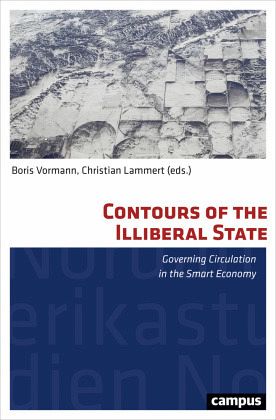Nicht lieferbar

Contours of the Illiberal State - Governing Circulation in the Smart Economy
Governing Circulation in the Smart Economy
Herausgegeben: Lammert, Christian; Vormann, Boris;Mitarbeit: Lammert, Christian; Vormann, Boris; Williams, Jeremy; Güse, Christian; Thiele, Lasse; Püschel, Julia; Kalt, Tobias; Braneck, Dave; DeDauw, Patri
Versandkostenfrei!
Nicht lieferbar
Globalisierung war zu keinem Zeitpunkt ohne staatliches Handeln möglich. Aber es macht für Demokratien einen Unterschied, ob der Staat versucht, in sozialen und ökologischen Fragen aktiv zu intervenieren - oder ob er, als illiberaler Staat, abseits der politischen Öffentlichkeit lediglich die Rahmenbedingungen für die Ausweitung globaler Märkte schafft. Die hier versammelten Beiträge richten einen historisch vergleichenden Blick auf die anhaltende, zentrale Rolle des US-amerikanischen Staats in der Smart Economy.











